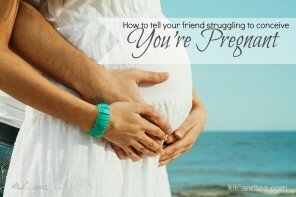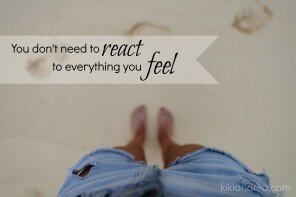Today’s guest post by An Idle Dad:

As the number of people describing themselves as No Religion in the census increases (from 18% to 22% over the last 4 years) and people describing themselves as Christian drops (between Australians 25-34, only 49% selected Christian) will our beliefs, and lack of, become a barrier to progress? With other non-Christian religions not picking up the slack, No Religion will, eventually, become the largest ‘religious’ group on the census. Atheism will win the religion ‘war’.
So why aren’t I happy? For one, I don’t have a problem with Christians and see no reason to ‘fight for Atheism’. Religion or no religion is not an indicator of goodness, or values, or anything really.
More importantly, despite assumptions to the opposite, I think this shift is death to progressive policy in Australia for the next fifty years.
Why? Because I believe that multicultural countries are more progressive than mono-culture countries which are more progressive than dual-culture countries. Australia will be a dual-culture country for the rest of my life.
Multiculturalism is when there is a single dominant culture and many minority subcultures. The dominant culture incorporates and sometimes absorbs many traits of the other cultures. These new ideas invigorate the social patchwork but allow the dominant culture to maintain comfortable and much-loved ideals.
Mono-cultural countries, while they don’t progress as quickly forward as multicultural societies, still absorb ideas from outside their society and once those ideas gain a foothold, they progress – sometimes with surprising ease. Take Spain, a country uniformly Catholic, which has had legal same-sex marriage for over half a decade. Ideas – even new ones – are accepted far more quickly when the opposition doesn’t see the change as an attack on their culture, but a progression of it. A fair and lawful Catholic society moving to a being a fairer, lawful Catholic society. Easy.
However, when you look at any dual-culture country or region in the world – Pakistan-India, the Middle East & Israel, Albanians and Serbs in Kosovo – you don’t see progressive politics. It’s hard to promote the middle-ground when any attempt to do so is classified by your political opponents as betraying everything your very own culture stands for.
Australia was multicultural for decades following the Second World War. In the 1970’s and 1980’s, our culture took huge, confident steps forward. We were a ‘grown up’ country. Minorities were minor, assimilation was viewed as guaranteed. Plus there was oodles of great new food to try. We were a country hiding behind Britain’s cultural skirts no longer. Pizza TV ads had Asian men dressed in Dryzabone jackets and Akubras saying “Strewth” – Italia mixed with Asia mixed with Aussie bush. Strewth, indeed.
 It may be popular to paint ourselves (and allow others to paint us) as dumb, drunk and racist, but Australia leads the world in two areas it should be very proud of – the highest percentage of cross-religious/cross-cultural relationships and the highest percentage of inter-racial relationships. That’s a lot of acceptance and a lot of progressive love.
It may be popular to paint ourselves (and allow others to paint us) as dumb, drunk and racist, but Australia leads the world in two areas it should be very proud of – the highest percentage of cross-religious/cross-cultural relationships and the highest percentage of inter-racial relationships. That’s a lot of acceptance and a lot of progressive love.
So what happened? Our watershed moment hit in 1996 – Christian dominance dropped below 75%, non-Christian religion crept over 5% and ‘no religion’, after remaining around 10% for decades, began its surge – increasing 30% in five years. 1996 was the year we switched from being multicultural to dual-culture. 1996 was also the year progressive politics died in Australia.
Up until 1996, the major parties dismissed the undercurrent of discontent – it was a minority: unorganised, unfocused and without representation. One Nation changed that. That short, bright flame focused of all the rage and split conservative politics in two. The reaction was predictable. Conservative parties shifted right to recover their base. The Coalition captured the mantle of ‘defender of the realm’ (that the Far Right had given themselves), a mantle reinforced by the truly seismic events of September 11 2001, and the political football of ‘boat people’ – ‘the others’ waterborne invasion by the north.
As how we viewed events around the world became tinged with religion, so too did Australian politics. Now the rising rate of non-Christians in Australia will mean that every progressive social idea will be seen as an attack on Christian culture. And Christians are now motivated by political factions to be organised and to vote in clear blocks. Kiss progressiveness goodbye.
It doesn’t have to be this way, but it will be. The irreligious of Australia could produce a stated set of secular values, most likely some that tie very closely to Christian values, and develop the “three C’s” – community, culture and continuity. But none of that will happen either – because it would, of course, be viewed as a betrayal of Atheist culture in progressive political circles. Both sides are hamstrung by the politics of dual-culture.
Of course, politics often doesn’t really matter, as the marriage stats mentioned earlier prove. Australia is an accepting, tolerant society. However, when it comes to key social issues progressing politically, it’s deader than dead.
To submit a guest post email







